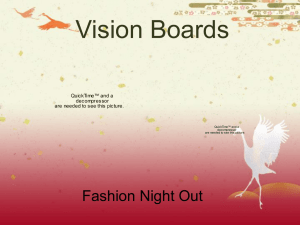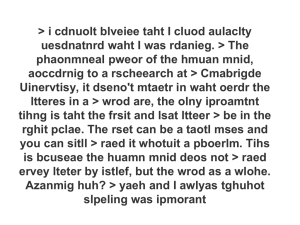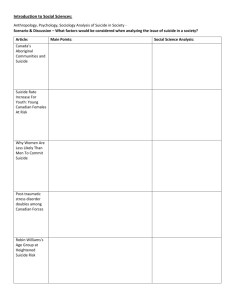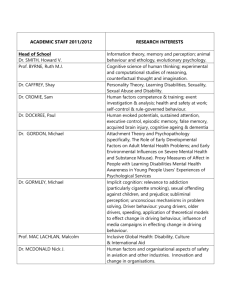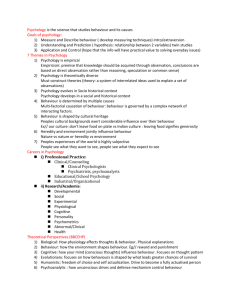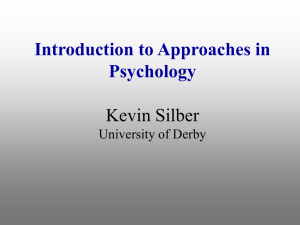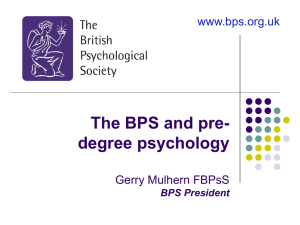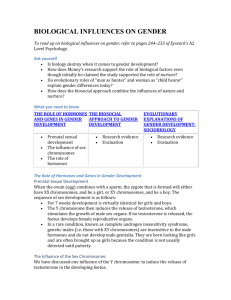Draw these nine dots in your notebook. Without lifting your pen or
advertisement
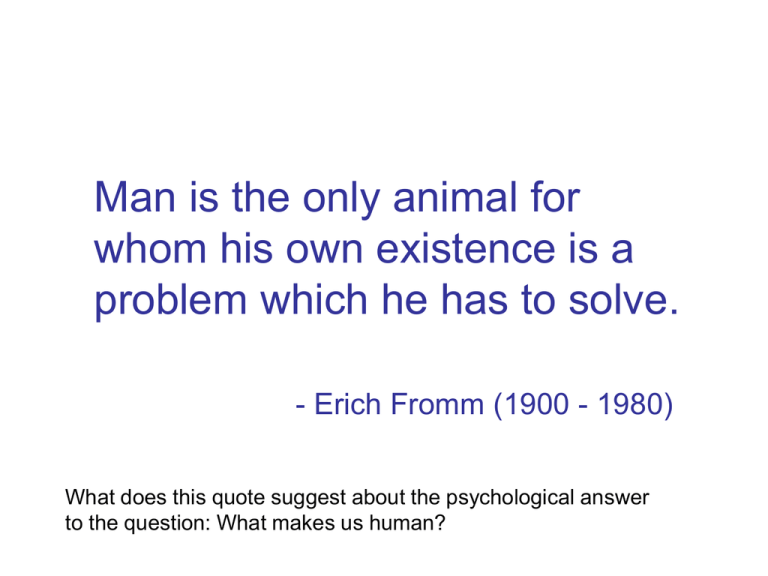
Man is the only animal for whom his own existence is a problem which he has to solve. - Erich Fromm (1900 - 1980) What does this quote suggest about the psychological answer to the question: What makes us human? Draw these nine dots in your notebook. Without lifting your pen or retracing any line, draw no more and no fewer than four straight lines that connect all nine dots. QuickTime™ and a decompressor are needed to see this picture. This tests your ability to reason and solve problems. QuickTime™ and a decompressor are needed to see this picture. Cognition: Humans’ ability to process information, apply knowledge, remember, think, and speak. Cognitive Psychology studies the mental processes that underlie behaviour. Areas of study include: •perception •memory and learning •Attention •Problem solving •language use and acquisition •reasoning and decision-making Read this paragraph aloud: I cdnuolt blveiee taht I cluod aulaclty uesdnatnrd waht I was rdanieg The phaonmneal pweor of the hmuan mnid Aoccdrnig to a rscheearch at Cmabrigde Uinervtisy, it deosn't mttaer inwaht oredr the ltteers in a wrod are, the olny iprmoatnt tihng is taht the frist and lsat ltteer be in the rghit pclae. The rset can be a taotl mses and you can sitll raed it wouthit a porbelm. Tihs is bcuseae the huamn mnid deos not raed ervey lteter by istlef, but the wrod as a wlohe. Amzanig huh? yaeh and I awlyas thought slpeling was ipmorantt. The Stroop Test Name the colour that each word is printed in: QuickTime™ and a decompressor are needed to see this picture. Sometimes our perception does not match up with reality… Video: the McGurk Effect Language • Our capacity for language is one of the things that makes us uniquely human • Video: Toddlers' representational thinking skills What makes us human? Based on what you’ve just seen, how do you think psychologists would approach the question: What makes us human? QuickTime™ and a decompressor are needed to see this picture. What makes us human? • From a psychological perspective, the cognitive process makes us human. • Humans are able to interpret and manipulate mental ideas and images to obtain information, reason, and solve problems. What makes us human? • The human brain is a complex and multidimensional organ • All vertebrates have a hypothalamus that regulates basic functions (such as______________) QuickTime™ and a decompressor are needed to see this picture. Source: User:Emijrp/Commons/eo/12 What makes us human? • The part of the brain that differentiates us from other species is the cerebral cortex - controls our thoughts, senses, language and memory • What does each side of the cerebral cortex control? QuickTime™ and a decompressor are needed to see this picture. Source: http://mindbrain.ucdavis.edu/labs/Miller/npb 165-pics/right_vs_left.jpg How do we interpret and manipulate information to make sense of the world around us? See a problem Encode/Store information Infer relationships Map information Apply possible Responses Respond Trace the cognitive process through a problem that you solved today. Birth of Psychology • Beginning in the late 19th century in Germany, people began to formally study human behaviour • Early studies in experimental psychology included reaction time of different parts of the body, attention span, perception of sensory experiences • Shift from folk wisdom about the reasons behind human behaviour to scientific experiments that study our mental processes Fields of Psychology Psychoanalysis • • • • A largely individualized examination of patients’ inner mind, often focusing on thoughts, feelings, emotions, fantasies, and dreams. Psychoanalysis attempts to understand a person’s unconscious and subconscious mind. Studies the role of unconscious motivation and early childhood experiences in determining behaviour and thought Used to treat trauma and anxiety Fields of Psychology Behavioural Psychology • • • • • A study of people’s and animals’ observable behaviour, often in relation to stimuli and responses. Behavioural psychologists often either ignore or discount the inner mind - the mind is an unknowable black box Studies the role of the environment in shaping and controlling behaviour Deduces principles for the prediction and control of behaviour Principles are consistent across species Fields of Psychology Cognitive Psychology • • • A blend of the two above-mentioned schools whereby psychologists attempt to understand the mind through scientific methods, often utilizing technology as a means to perceive the mind’s biological inner workings. Studies the mental processes that underlie behaviour Areas of study include: – perception – memory and learning – language use and acquisition – reasoning and decision-making
